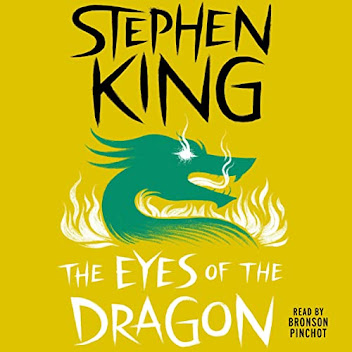ONE SUMMER: AMERICA, 1927 (audiobook) by Bill Bryson
Published by Random House Audio in 2013.
Read by the author, Bill Bryson.
Duration: 17 hours, 3 minutes.
Unabridged.
Bill Bryson's One Summer: America, 1927 is an immensely interesting book, as would any book that featured Charles Lindbergh, Calvin Coolidge, Herbert Hoover, Babe Ruth, Lou Gehrig, Sacco and Vanzetti, Jack Dempsey, Gutzon Borglum, Charles Ponzi, Al Capone, Al Jolson, Zane Grey, Edgar Rice Burroughs, Henry Ford, several Hollywood stars and more.
The book starts out with the story of Charles Lindbergh and the other flyers that were attempting to cross the Atlantic in a non-stop flight to claim the $25,000 Orteig Prize.
Bryson moves on to tell the stories of the other people I named above - often cleverly lacing them together with the story of Charles Lindbergh. We learn about baseball, boxing, Hollywood (there's a hilarious story about Jack Dempsey with a starlet), the beginnings of "talkies" and the movie palaces, the rise of radio networks, the first experiments with television, the beginnings of America's fascination with the automobile, Prohibition and Al Capone's brief career. There were a lot of bombings in the 1920's and Sacco and Vanzetti may have participated in some of them.
About those bombings - I have a theory that certain horrific crimes become "trendy" - they become the thing to do when you want to make some sort of "statement." School shootings are that statement nowadays. In the late 1980's and early 1990's there were a rash of workplace shootings by postal workers, thus the term "going postal." In the 1920's it was bombings. Some were politically motivated, some were motivated by family stresses, such as the worst school piece of school violence ever - the Bath Township elementary school bombing in 1927.
As he tells the story of the summer of 1927, the reader realizes that America was being introduced to a lot of new things in the 1920's that are a normal part of everyday life in modern America such as consumer culture (paying by way of installment plans was a new concept), big time sports, radio networks (paving the way for TV and other media networks), presidential trips and even gang violence over banned drugs (in this case it was alcohol, but the same lessons apply with other drugs nowadays).
Bryson is not fond of any of the Presidents in the 1920's and he justifies that disdain pretty well. Herbert Hoover comes off as a first-rate pompous self-promoter, even if he was very effective at feeding millions of people after World War I. Calvin Coolidge was treated a little too roughly, in my opinion. The more I hear about Warren G. Harding, the more I am amazed at his staggering incompetence and crudity.
The audiobook was read by the author. I warmed up to his reading style after an hour or so, mostly because I kept trying to place his accent. Bryson grew up in Iowa but has lived most of his adult life in the U.K. This has left him with an ambiguous accent not unlike that of Cary Grant or Katharine Hepburn.
This was one of my favorite books of the summer and I heartily recommend it.
This book can be found on Amazon.com here: One Summer: America, 1927.
Read by the author, Bill Bryson.
Duration: 17 hours, 3 minutes.
Unabridged.
Bill Bryson's One Summer: America, 1927 is an immensely interesting book, as would any book that featured Charles Lindbergh, Calvin Coolidge, Herbert Hoover, Babe Ruth, Lou Gehrig, Sacco and Vanzetti, Jack Dempsey, Gutzon Borglum, Charles Ponzi, Al Capone, Al Jolson, Zane Grey, Edgar Rice Burroughs, Henry Ford, several Hollywood stars and more.
 |
| Boxing champ Jack Dempsey (1895-1983) |
Bryson moves on to tell the stories of the other people I named above - often cleverly lacing them together with the story of Charles Lindbergh. We learn about baseball, boxing, Hollywood (there's a hilarious story about Jack Dempsey with a starlet), the beginnings of "talkies" and the movie palaces, the rise of radio networks, the first experiments with television, the beginnings of America's fascination with the automobile, Prohibition and Al Capone's brief career. There were a lot of bombings in the 1920's and Sacco and Vanzetti may have participated in some of them.
About those bombings - I have a theory that certain horrific crimes become "trendy" - they become the thing to do when you want to make some sort of "statement." School shootings are that statement nowadays. In the late 1980's and early 1990's there were a rash of workplace shootings by postal workers, thus the term "going postal." In the 1920's it was bombings. Some were politically motivated, some were motivated by family stresses, such as the worst school piece of school violence ever - the Bath Township elementary school bombing in 1927.
As he tells the story of the summer of 1927, the reader realizes that America was being introduced to a lot of new things in the 1920's that are a normal part of everyday life in modern America such as consumer culture (paying by way of installment plans was a new concept), big time sports, radio networks (paving the way for TV and other media networks), presidential trips and even gang violence over banned drugs (in this case it was alcohol, but the same lessons apply with other drugs nowadays).
Bryson is not fond of any of the Presidents in the 1920's and he justifies that disdain pretty well. Herbert Hoover comes off as a first-rate pompous self-promoter, even if he was very effective at feeding millions of people after World War I. Calvin Coolidge was treated a little too roughly, in my opinion. The more I hear about Warren G. Harding, the more I am amazed at his staggering incompetence and crudity.
The audiobook was read by the author. I warmed up to his reading style after an hour or so, mostly because I kept trying to place his accent. Bryson grew up in Iowa but has lived most of his adult life in the U.K. This has left him with an ambiguous accent not unlike that of Cary Grant or Katharine Hepburn.
This was one of my favorite books of the summer and I heartily recommend it.
This book can be found on Amazon.com here: One Summer: America, 1927.











Comments
Post a Comment